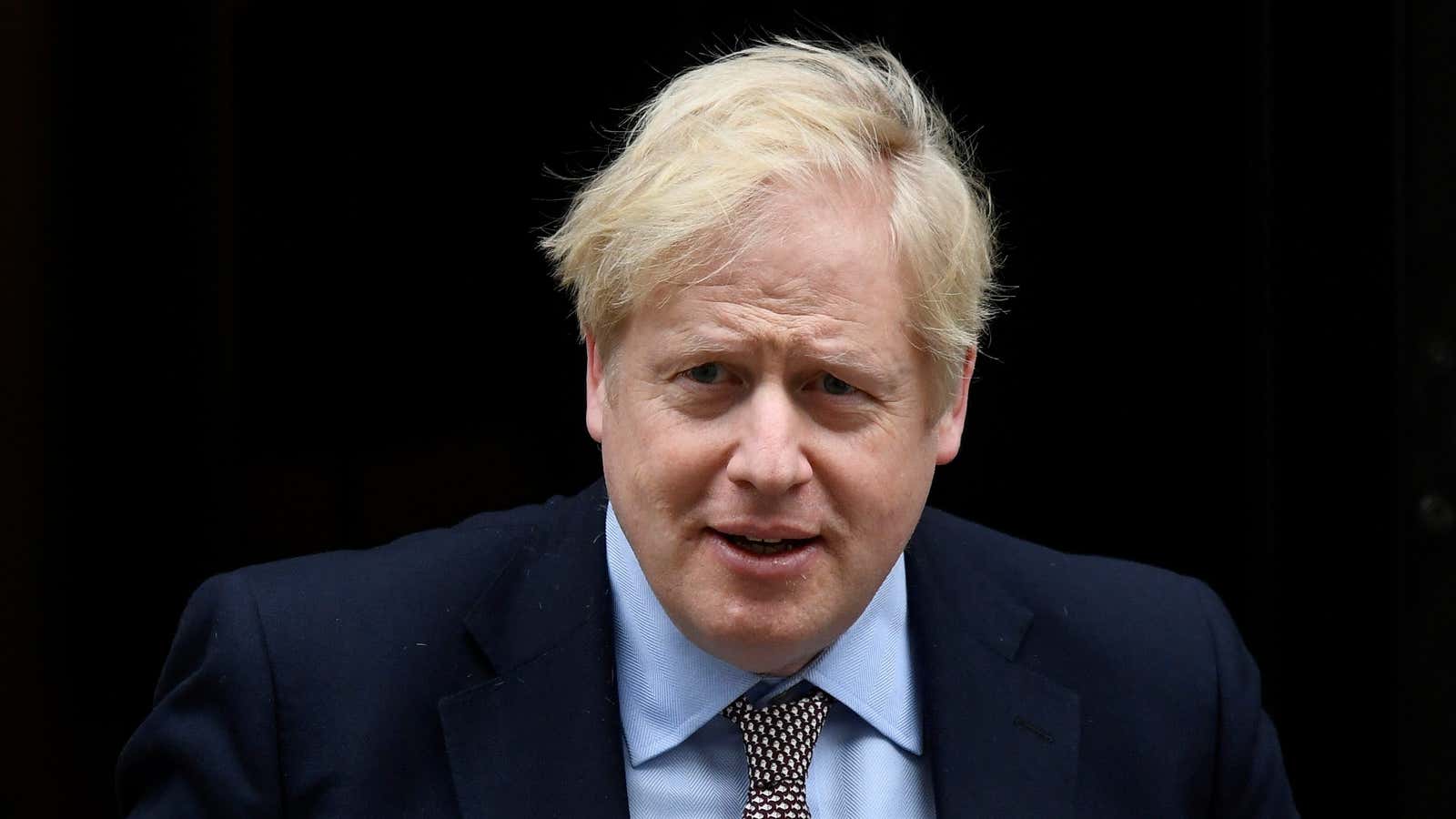British prime minister Boris Johnson was admitted into the intensive care unit of St. Thomas’ Hospital in London late Monday (April 6) due to complications related to coronavirus, his office said in a statement.
Johnson was diagnosed with Covid-19 last week and was admitted to St. Thomas’ on Sunday with “persistent symptoms.” “Over the course of this afternoon, the condition of the prime minister has worsened and, on the advice of his medical team, he has been moved to the Intensive Care Unit at the hospital,” a spokesperson said.
Earlier today, Johnson tweeted from the hospital that he was “in good spirits.” A spokesperson said he has now asked foreign secretary Dominic Raab to take over his duties “where necessary.”
The deterioration of Johnson’s condition raises further concerns about the UK’s response to this pandemic. The British government has been criticized for its initial laissez-faire approach to the virus, which has now infected at least 47,810 people—including Johnson, his partner, and several members of his cabinet—and killed close to 5,000 people in the UK. Johnson’s condition also raises questions about what would happen to British political life should he no longer be able to exercise his functions as prime minister, or worse, die from the disease.
As my colleague Hasit Shah has written:
If a prime minister departs suddenly for any reason, the party to which they belong elects a new leader and, after confirmation by the Queen, that person becomes the new permanent prime minister. That process could take days, or even weeks.
In an emergency, like the one the UK is facing right now, the baton would most likely be passed first to one of the three most senior government ministers: the chancellor (finance minister), home secretary, or foreign secretary. But there is no written rule that states which of those three would take charge.
It is also possible, constitutionally, to have no prime minister. Senior ministers could take turns running meetings, while the delivery of their policies has always been a matter for Britain’s civil service.
In a time of heightened uncertainty, this latest development is sure to further unnerve markets, individuals, and governments around the world. Before his Covid-19 diagnosis, Johnson led daily televised briefings with medical and scientific advisers, always insisting that Britain would get through this crisis. The Financial Times reports (paywall) that, in Johnson’s absence, various key cabinet members have jockeyed to control the government’s response to this disease.
Tonight, Raab said (paywall) that “the government’s business will continue and the prime minister is in great hands with a brilliant team.”
The British pound weakened against the dollar after the announcement from Downing Street, dropping by as much as 0.5%.
